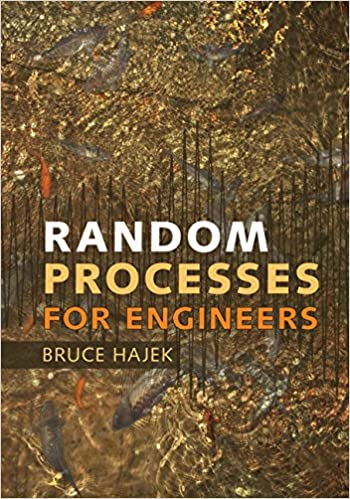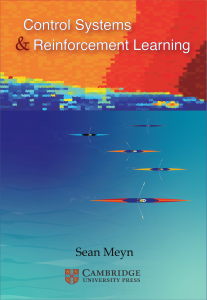An introduction to stochastic process theory with emphasis on applications to communications, control, signal processing and machine learning. The course covers basic models, including Markov processes, and how they lead to algorithms for classification prediction, inference and model selection.
The course mainly follow’s Hajek’s excellent textbook. Markov chains and Monte-Carlo methods are based on chapters 7 and 8 of the new monograph
Most of the topics in this course are basic to any machine learning / statistical learning course. Applications to stochastic optimization and reinforcement learning are touched on throughout; topics such as relative-entropy, mutual information, and hidden Markov models are relevant in every corner of communications, control and signal processing. Wikipedia will list applications ranging from nance to natural language processing.
Essential background: Probability theory and appreciation for mathematical foundations. Experience with Matlab or Python is also essential.
Notes for 2023:
- UF Statistics 2023 Winter Workshop: Modern Computational Statistics, January 13&14, 2023. Amazing list of speakers!
- 6th Workshop on Cognition and Control in Complex Systems, January 26&27, 2023 (also on campus).
- No lecture the week of January 16-20. I will be at Cambridge U.K., presenting a tutorial lecture series for the semester program, The mathematical and statistical foundation of future data-driven engineering
Course information from Spring 2022
More Resources
- Ramon van Handel’s lecture notes on HMMs

